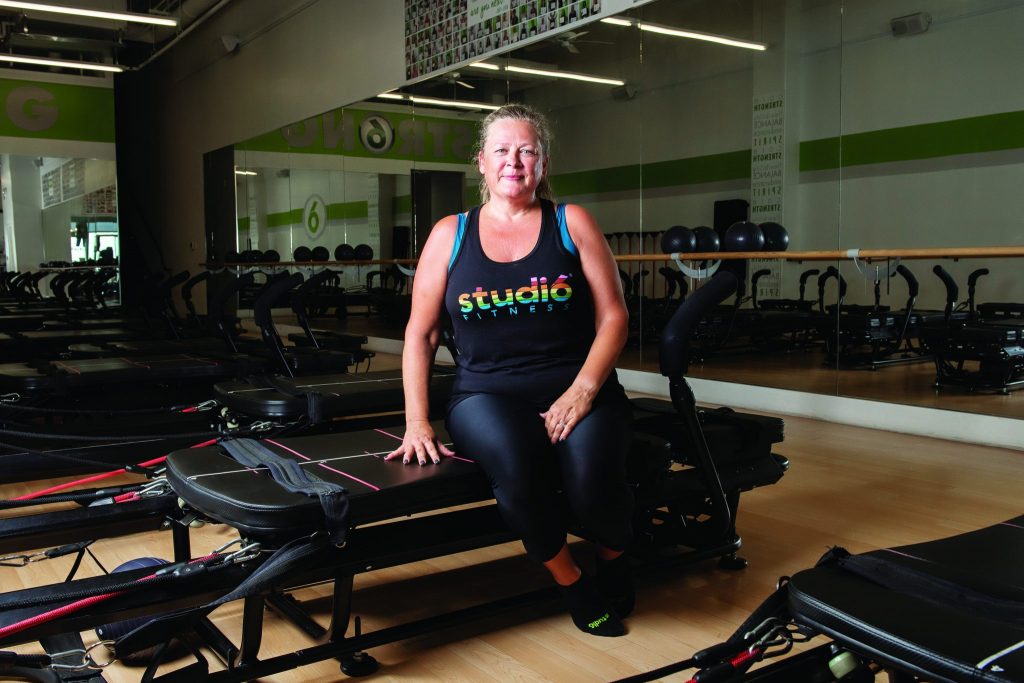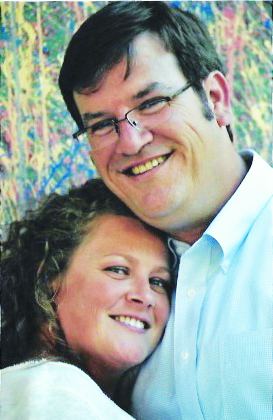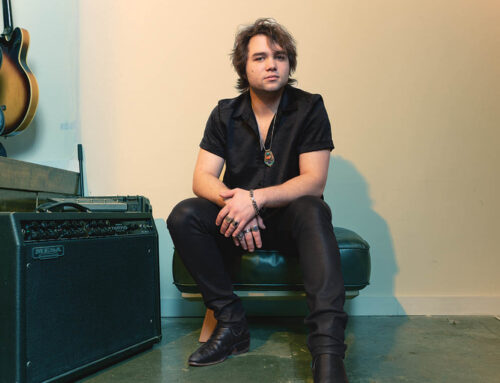Exorcising grief

Photo by Danny Fulgencio
Brandi West, 43, starts the day with an act of heroism: She makes herself get up out of her marriage bed. She dons a Studio 6 Fitness T-shirt, packs her Pilates grip socks and heads to the gym. On the way, the radio plays a song by “Drive-By Truckers,” and despondency from the April death of her 49-year-old husband, Rip, overcomes her.
He died in the middle of the night from a heart attack. She remembers sitting in the hospital waiting room alone as nurses called the code blue. “After he died, everyone would say, ‘I’m so proud of you.’ And I would say, ‘Why? Because I’m getting out of bed?’”
But on most days, she knows Pilates instructor and friend Madeleine Fontes is waiting for her. Fontes gets it. Her son died suddenly seven years ago at age 18. Fontes, once a client, now teaches between four to seven classes a week.
Neighbors struggling with grief find solace in many Preston Hollow places, especially during the holidays, when emotions can be overwhelming.
But for some, it’s Pilates and personal trainers that get them through, one day at a time.
“Exercise plays an important role in the grieving process,” says Dr. Akanksha Kumar of the Methodist Family Health Center in Preston Hollow.
“Exercise releases endorphins, which can counter the stress hormone and lift one’s mood.”
Fontes used to swim, but she didn’t want to see her old friends from the pool after her son’s death. “I didn’t want the pity face,” she says. Instead, she started a new routine.
“I needed to not be locked away in my house,” Fontes says. “A grief program didn’t help; alcohol didn’t help. I just became catatonic, inert. I sat at a grief conference and thought, ‘Look at us. We’re 600 people. There’s nothing you can do to stop our grief. There’s nothing that anyone can say to make us feel better.’”
West says when the workout starts, she doesn’t have time to feel sorry for herself. “When I leave here, I feel good. It’s not ‘poor, pitiful me. I’m never going to find another Rip. I’m never going to find a person who loved me so much.’ When you get here, you don’t have time for those negative thoughts to take hold.”
For West, the physical pain from exercise is her way of saying, “Hey, God, take that! You caused me anguish, but I am in control of this pain.”
Stephanie Stephenson, studio director at Utopia Food + Fitness on Preston Road, remembers a 32-year-old client whose husband died in a work accident. The couple had been married a little more than three years. The widow would buy groceries but not prepare a meal. She was drinking too much alcohol and not eating.
After a year of “floundering,” she found Utopia, which figures out how many calories a client needs, provides a pre-made meal plan and a 20-minute workout routine. “When I talk to people who are grief stricken, they either can’t think about eating, or they are self-medicating with food and wine,” Stephenson says. “Either way, you’re negatively affecting your body, and you feel worse. We’re coaches for them.”

Mourning in the morning
Michelle Anderson’s son Blake died of a heart attack in 2015 while mountain biking with friends at former President George W. Bush’s ranch in Crawford. He was 30, a graduate of Jesuit, and worked as an assistant to Dallas City Councilman Adam McGough. When someone asked her how she got out of bed every day, she said, “I do what I did before he died and after he died. I get up at 6 a.m. and go to Pilates every day.”
For a year after Blake’s death, her son Richie joined her in the exercise class Mondays through Fridays. “I look at the walls that say ‘strength,’ ‘spirit’ and ‘balance,’ and I think about Blake.” She also met a couple in the class. The husband’s daughter died when she was 13. “Talking to him was very healing too.”
Anderson now has five grandchildren, one of whom is named Blake. She also volunteers, including with the annual Blake Anderson Public Service Awards named in her son’s honor. “Life does go on,” she says.
GRIEF RELIEF:
ONE NEIGHBOR’S
EXPERT TIPS
Dr. Akanksha Kumar of Methodist Family Health Center, Preston
Hollow, offers this advice:
What does research show about the link between grief and fitness?
Consistent exercise can improve mood symptoms just within a few weeks. However, it’s important to respect one’s body and mind. Delving into a new exercise routine after a loss is usually not recommended. However, after the “rawness” of the event starts to subside, exercise can be helpful. Some research shows that it is as effective as being on antidepressants.
What is the best type of exercise to do when you’re grieving?
Research shows that some form of cardio can be cathartic. However, listen to your body. Over-exerting can be problematic in the denial or anger stage of grief. If you are new to fitness, try starting with 10-15 minute cardio intervals. If you are someone who consistently exercises, continue your usual routine. The key is keeping things simple and consistent so it can become an outlet rather than a chore. Some integrate yoga and meditation to help calm the mind.
How long does the grieving process last?
It can last anywhere from a few weeks to six months, maybe longer. If it has been more than six months, let your doctor know.
Are there resources specific to our neighborhood that you suggest?
Preston Hollow has lots of fitness centers, especially group exercise classes like SoulCycle, Pure Barre and Orangetheory. Talk to your physician if you feel lost. It is unlikely that you are alone.






